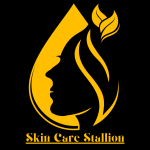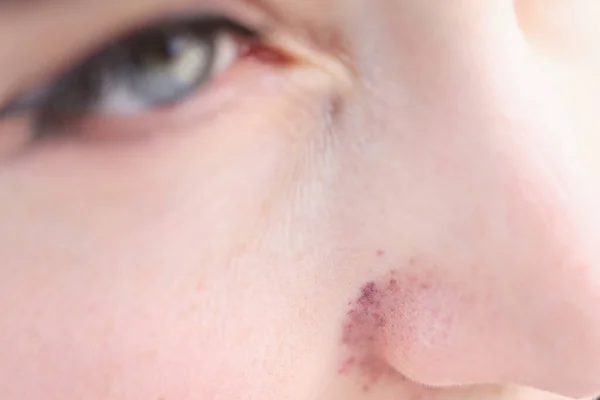Why does my skin burn after skincare? Understanding the cause can help you adjust your routine and prevent irritation.
Have you ever applied your favorite skincare product only to feel an unexpected burning sensation creeping across your face? This surprising discomfort can leave even the most seasoned skincare enthusiasts puzzled and concerned.
From harsh ingredients to improper application, a myriad of factors might be responsible for why your skin feels on fire after what should have been a pampering session.
Understanding why your skin burns after skincare not only helps prevent damage but also empowers you to make smarter choices for your skin’s health and well-being.
Dive into the world of skincare chemistry, where knowledge turns confusion into clarity, and learn how to transform your routine into a soothing ritual rather than a stinging ordeal.
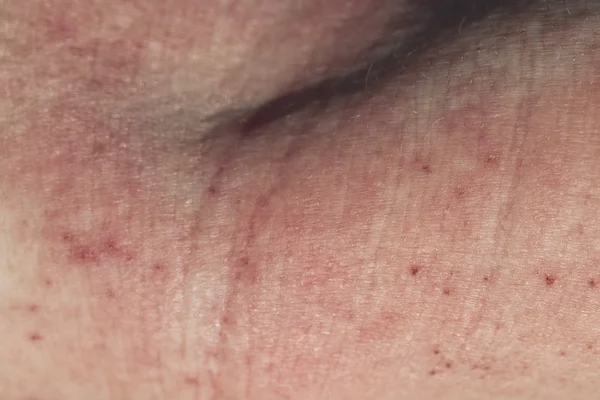
Why Does My Skin Burn After Skincare
Many people experience burning or stinging sensations after applying skincare products. This discomfort is often due to ingredients like acids or retinoids, incorrect application, or a reaction to a specific formulation.
Sensitive skin types are more prone to such reactions. Understanding your skin’s needs and the ingredients you use can help prevent these issues. Consulting a dermatologist can provide personalized solutions and recommendations.
Understanding Skin Sensitivity and Reactions
Skin burning after skincare can be an alarming experience, especially if you’re unsure why it’s happening. One of the primary reasons behind this sensation is skin sensitivity. People with sensitive skin often have a compromised skin barrier, which makes them more prone to reactions.
This barrier protects against environmental factors, bacteria, and irritants. When the barrier is weak, it can’t effectively shield your skin, leading to increased sensitivity. Harsh ingredients in skincare products can also trigger reactions, as sensitive skin doesn’t tolerate them well.
Ingredients like alpha hydroxy acids (AHAs), beta hydroxy acids (BHAs), retinoids, and certain fragrances can irritate sensitive skin. These components are designed to exfoliate, brighten, or treat acne, but they can strip away essential oils and moisture if not used properly.
This leaves your skin vulnerable, resulting in burning sensations. If your skin frequently reacts, it might be beneficial to look for fragrance-free or hypoallergenic products, as these are formulated to minimize the risk of irritation.
The Role of pH Levels and Skincare Products
Another reason for the burning sensation can be the pH imbalance of skincare products. The skin’s natural pH level is around 5.5, which is slightly acidic. This level is essential for maintaining healthy skin function. However, many skincare products have a different pH level that can disturb the skin’s natural balance.
Cleansers, toners, or exfoliants that are too acidic or alkaline can cause irritation. This is why it’s essential to understand your products’ pH levels, especially when layering multiple items. If you combine products with varying pH levels, it may lead to skin barrier disruption, resulting in discomfort or burning sensations.
The method of product application can also affect how your skin reacts. Rubbing products too vigorously into the skin or applying too much can lead to irritation. Gentle patting and allowing products to absorb naturally can reduce the risk of burning sensations.
Furthermore, mixing incompatible ingredients, such as combining vitamin C with retinoids or AHAs, can intensify irritation. Each product has a specific function and active components, so understanding how they interact is vital for safe use.
Active Ingredients: Benefits and Potential Irritation
Active ingredients are the powerhouse behind effective skincare, but they can also be the culprit for burning sensations. Retinoids, AHAs, BHAs, and vitamin C are common active ingredients that provide substantial benefits for acne, anti-aging, and skin brightening.
However, their powerful nature means they can also cause irritation, especially for beginners. Retinoids, for instance, work by increasing cell turnover, which can cause initial dryness, redness, or peeling.
AHAs and BHAs exfoliate the skin by removing dead skin cells, potentially leading to a burning sensation if used excessively. It’s important to start with a lower concentration and gradually introduce them into your routine. Allowing your skin to build tolerance can help mitigate irritation.
The frequency of use is crucial too. Using active ingredients daily when your skin is not accustomed can exacerbate the problem. Therefore, moderation and patience are key. Spot testing before full application can help identify any adverse reactions early on.
Allergic Reactions and Patch Testing
Sometimes, the burning sensation is due to an allergic reaction. Ingredients such as preservatives, fragrances, or colorants in skincare products can cause allergies.
Allergic reactions are more severe than simple irritation and might include symptoms like itching, redness, swelling, or a rash. If you suspect an allergic reaction, it is crucial to stop using the product immediately and consult with a dermatologist.
Patch testing is a preventative measure that can help avoid allergic reactions. By applying a small amount of the product to a discreet area of skin and waiting 24-48 hours, you can check for adverse reactions. This test helps determine if your skin will tolerate the product before applying it to larger areas.
If you notice any signs of an allergic reaction, it’s best to refrain from using the product. Choosing products labeled “dermatologist-tested” can further minimize the risk of allergies, as these are generally formulated to be gentle and non-irritating.
Environmental Factors and External Triggers
Environmental factors play a significant role in how your skin reacts to skincare products. Extreme temperatures, humidity, pollution, or exposure to the sun can affect the skin’s condition. Cold weather and wind can strip moisture from the skin, making it more susceptible to irritation.
Similarly, hot and humid conditions can increase oil production, potentially leading to acne or irritation when combined with active ingredients. Pollution introduces free radicals and toxins to the skin, weakening its barrier and heightening sensitivity.
Sun exposure can also intensify the effects of active ingredients like AHAs, BHAs, and retinoids. These ingredients increase photosensitivity, making your skin more prone to sunburn or irritation when exposed to UV rays.
Therefore, sunscreen is an essential component of any skincare routine, especially when using active ingredients.
Opt for a broad-spectrum sunscreen with at least SPF 30 to protect your skin from potential harm. In addition, antioxidants can help combat environmental stressors by neutralizing free radicals, further safeguarding your skin.
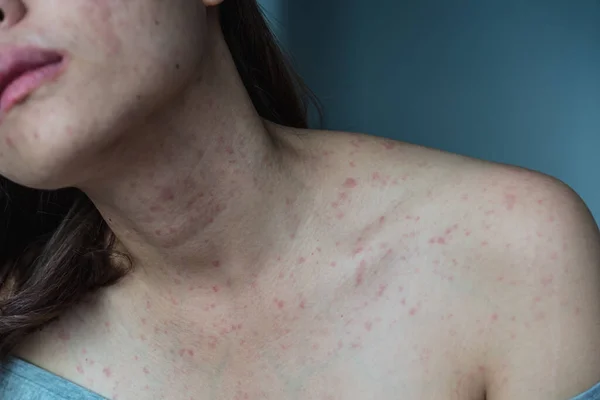
How to Soothe and Prevent Skin Burning
Experiencing burning sensations after applying skincare products can be distressing, but there are several steps you can take to alleviate the discomfort and prevent it in the future. First, immediately rinse your face with cool water to remove the offending product.
This can help soothe the skin and stop the burning sensation. Afterward, applying a calming, fragrance-free moisturizer can help restore the skin’s barrier and provide relief.
Incorporating gentle, hydrating products into your routine can help prevent future occurrences. Look for products with soothing ingredients like aloe vera, chamomile, or ceramides. These components support the skin’s barrier and reduce inflammation.
It’s essential to build a routine that prioritizes hydration and protection, especially if you have sensitive skin. Limiting the use of exfoliating or active products to a few times a week can prevent over-exfoliation and irritation. If you’re unsure about which products to use, consulting with a dermatologist for personalized advice can be beneficial.
When to Seek Professional Help
While occasional burning or irritation might be manageable at home, persistent or severe symptoms warrant professional intervention. If your skin consistently reacts negatively to multiple products, it could indicate an underlying issue that needs medical attention. A dermatologist can assess your skin’s condition, identify potential allergies or sensitivities, and provide tailored recommendations.
Professional guidance is especially crucial if you experience symptoms like blistering, severe redness, or persistent burning sensations that don’t subside. These could indicate conditions such as contact dermatitis, eczema, or rosacea, which require specialized treatment.
Additionally, if you’re considering introducing new active ingredients into your routine, a dermatologist can help determine the best approach for your skin type and concerns. Prioritizing professional advice ensures that your skincare routine supports your skin’s health and minimizes the risk of adverse reactions.
Common Causes of Skin Burning After Skincare
Irritation from Active Ingredients
Acids (AHAs/BHAs)
Exfoliating acids like glycolic acid and salicylic acid can cause skin burning. These acids promote cell turnover but can irritate sensitive skin, leading to a burning sensation. AHAs (alpha-hydroxy acids) and BHAs (beta-hydroxy acids) are potent and should be used cautiously.
Retinoids
Retinoids, such as retinol and tretinoin, accelerate skin renewal. This process can lead to irritation and a burning feeling, especially when starting a new retinoid product. Retinoids are effective but may cause initial discomfort.
Vitamin C
Vitamin C, in forms like ascorbic acid and sodium ascorbyl phosphate, is known for its brightening effects. However, its potency can lead to burning, particularly on sensitive skin. High concentrations might trigger reactions in some individuals.
Allergic Reactions
Fragrances and Preservatives
Added fragrances and preservatives are common allergens in skincare products. These ingredients can cause allergic reactions, resulting in burning or stinging sensations.
Specific Ingredients
Certain skincare ingredients can be allergens. Identifying and avoiding these specific allergens can help prevent adverse reactions.
Overuse or Incorrect Use of Products
Layering Multiple Products
Combining multiple active products can overwhelm the skin. Incorrect layering might lead to irritation and burning. It’s essential to use compatible products to avoid adverse reactions.
Applying Too Frequently
Excessive use of skincare products can irritate the skin barrier. Overapplication can result in a burning sensation and exacerbate skin sensitivity.
Skin Barrier Disruption
Role of the Skin Barrier
The skin barrier protects against external irritants. A compromised barrier can cause increased sensitivity and burning. Maintaining a healthy barrier is crucial for skin comfort.
Factors Leading to Barrier Damage
Harsh cleansers and aggressive exfoliation can damage the skin barrier. This disruption can lead to a burning feeling and heightened skin sensitivity.
Pre-existing Skin Conditions
Sensitive Skin
Sensitive skin is prone to reactions from skincare products. Characteristics include redness and burning. Proper management and choosing gentle products are key for sensitive skin.
Rosacea and Eczema
Conditions like rosacea and eczema can amplify reactions to skincare products. These conditions can make the skin more susceptible to burning and irritation. Tailored skincare routines are necessary for managing these conditions.
Immediate Actions to Take When Experiencing Skin Burning
Rinsing Off the Product
When your skin feels like it’s burning, the first step is to rinse off the product. Gently use lukewarm water to wash away any irritants. Avoid hot water, as it can worsen irritation. Use a mild, non-fragranced cleanser to ensure that you’re not introducing additional irritants.
Using Soothing Products
Aloe Vera and Chamomile
Natural remedies like aloe vera and chamomile can soothe burning skin. Aloe vera is known for its cooling and anti-inflammatory properties. Chamomile has calming effects that help reduce redness and irritation. Apply these ingredients directly to the affected area for immediate relief.
Hydrocortisone Cream
Hydrocortisone cream can be effective in reducing inflammation and irritation. Use a low-strength cream for mild reactions. Apply a thin layer to the affected area, but avoid overuse. Always follow the product instructions or consult a dermatologist for proper usage.
Avoiding Further Irritation
After experiencing a skin burn, it’s essential to avoid further irritation. Stick to a minimal skincare routine. Use gentle, non-comedogenic products that won’t aggravate the skin. Avoid exfoliants, retinoids, and other potent ingredients until the skin has fully healed.
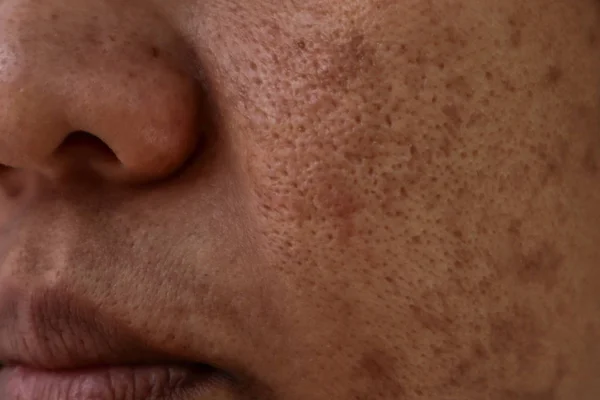
Long-Term Strategies to Prevent Skin Burning
Patch Testing
Patch testing is crucial for preventing skin burning from new products. It helps identify potential irritants before they affect your skin. To patch test, apply a small amount of the product to a discreet area, such as behind your ear. Wait 24-48 hours to see if any irritation occurs. This simple step can save you from adverse reactions.
Choosing Gentle Formulations
Opt for gentle formulations to avoid skin burning. Look for products labeled as “hypoallergenic” or “for sensitive skin.” Ingredients like fragrance, alcohol, and harsh preservatives can cause irritation. Instead, choose products with soothing ingredients like aloe vera and chamomile. Gentle formulations reduce the risk of irritation and burning.
Consulting a Dermatologist
Consulting a dermatologist is essential for managing skin health. Seek professional advice if you experience persistent burning or irritation. A dermatologist can diagnose underlying conditions and recommend suitable products. They provide personalized care that helps prevent long-term skin issues and burning.
Gradual Introduction of New Products
Introducing new products gradually minimizes the risk of skin burning. Start with one new product at a time and monitor your skin’s reaction. This approach helps identify which product causes issues if irritation occurs. Gradual introduction allows your skin to adapt and reduces the likelihood of adverse reactions.
When to Seek Professional Help
Persistent or Severe Reactions
If you experience ongoing or intense skin reactions, it’s crucial to consult a dermatologist. Persistent redness, swelling, or irritation that doesn’t improve with over-the-counter treatments often signals the need for professional evaluation.
Persistent acne, eczema flare-ups, or severe dryness that disrupts daily life should also prompt a visit to a skin specialist. Seeking help early can prevent more serious complications and ensure you get the right treatment tailored to your needs.
Uncommon Symptoms
Unusual skin symptoms like sudden changes in skin texture, unexplained pain, or severe rashes may indicate a more serious condition. If you notice symptoms like abnormal pigmentation, persistent itching, or bleeding from a mole, professional medical advice is essential.
Uncommon signs could point to underlying health issues or rare skin conditions that require specialized care. Don’t ignore symptoms that deviate from your usual skin issues consulting a dermatologist can provide crucial insights and effective treatment options.
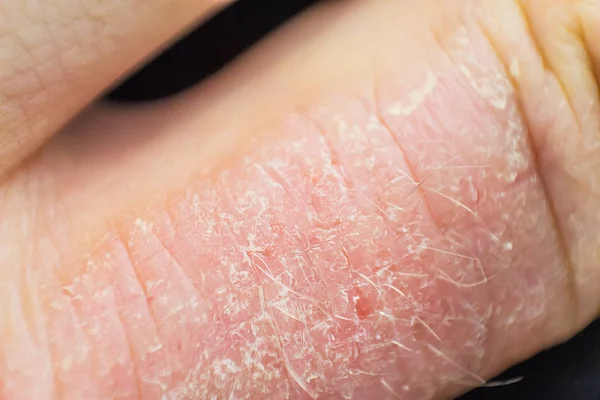
FAQs
Why does my skin burn after applying skincare products?
Skin burning after applying skincare products can be caused by several factors, such as allergic reactions, over-exfoliation, or the presence of harsh ingredients.
When skincare products contain strong acids or alcohol, they can irritate the skin, leading to a burning sensation. This reaction may be due to the skin’s sensitivity to certain components or improper usage of the products.
What ingredients commonly cause a burning sensation?
Common ingredients that may cause a burning sensation include:
Alpha Hydroxy Acids (AHAs): Found in exfoliants and peels, AHAs like glycolic acid and lactic acid can cause irritation, especially for sensitive skin types.
Beta Hydroxy Acids (BHAs): Salicylic acid is known for penetrating deeply and may irritate dry skin.
Retinoids: While effective for anti-aging, retinoids like retinol can cause redness and irritation if not used gradually.
Benzoyl Peroxide: This acne-fighting ingredient can dry out the skin and lead to irritation.
Alcohol: Found in toners and astringents, alcohol can strip the skin of natural oils and cause discomfort.
Fragrances and Essential Oils: Synthetic fragrances and certain essential oils may trigger allergic reactions in sensitive individuals.
Is it normal for skincare products to sting a little?
A slight tingling or stinging sensation can be normal when using certain active ingredients, especially if you are new to the product. However, if the sensation is intense or prolonged, it may indicate a negative reaction. It’s essential to monitor how your skin feels and to discontinue use if discomfort persists.
How can I prevent my skin from burning after skincare?
To prevent burning, consider these tips:
Patch Test New Products: Always test a new product on a small area of skin to check for adverse reactions before applying it to your face.
Start Slowly: Gradually introduce active ingredients like retinoids or acids into your routine to allow your skin to build tolerance.
Hydrate and Moisturize: Ensure your skin is well-hydrated with a gentle moisturizer to strengthen the skin barrier.
Avoid Over-Exfoliating: Limit the use of exfoliating products to prevent damage to your skin’s protective barrier.
Use Sunscreen: Apply broad-spectrum sunscreen daily to protect sensitive skin from further irritation caused by UV rays.
What should I do if my skin burns after using a product?
If your skin starts to burn after using a product, follow these steps:
Rinse Immediately: Remove the product by rinsing with cool water to calm the skin.
Apply a Soothing Product: Use a fragrance-free moisturizer or aloe vera gel to soothe irritation.
Avoid Active Ingredients: Refrain from using exfoliants, retinoids, or other strong products until your skin has recovered.
Seek Professional Help: Consult a dermatologist if the burning sensation persists or if your skin develops rashes or peeling.
Can sensitive skin types use active ingredients without irritation?
Yes, sensitive skin types can use active ingredients with proper precautions:
Choose Formulations for Sensitive Skin: Look for products labeled as “gentle” or “for sensitive skin.”
Use Lower Concentrations: Start with lower concentrations of active ingredients to minimize irritation.
Apply Sparingly: Use small amounts of the product and avoid applying it daily until your skin adjusts.
Follow with a Barrier Cream: Using a barrier cream after applying active ingredients can protect sensitive skin.
Are there specific products designed to reduce skin irritation?
Yes, several products are formulated to reduce skin irritation:
Barrier Repair Moisturizers: These contain ingredients like ceramides, niacinamide, and peptides that help restore and protect the skin’s barrier.
Gentle Cleansers: Opt for sulfate-free, hydrating cleansers that do not strip the skin of its natural oils.
Anti-Inflammatory Serums: Products with ingredients like chamomile, green tea, or centella asiatica can soothe irritated skin.
Hypoallergenic Formulas: Choose products free from fragrances, dyes, and other common irritants for sensitive skin.
How does over-exfoliation cause burning sensations?
Over-exfoliation removes the protective outer layer of the skin, exposing it to environmental irritants and leading to redness, sensitivity, and a burning sensation. Exfoliating too often or using harsh scrubs and peels can damage the skin barrier, making the skin more susceptible to irritation from other products.
Can lifestyle factors contribute to skin irritation from skincare products?
Yes, lifestyle factors such as stress, diet, and lack of sleep can affect skin sensitivity:
Stress: Stress hormones can weaken the skin barrier, making it more prone to irritation.
Diet: Consuming spicy foods, caffeine, or alcohol may increase skin sensitivity.
Lack of Sleep: Poor sleep quality can impair skin recovery and increase susceptibility to irritation.
Maintaining a balanced lifestyle with a nutritious diet, regular exercise, and adequate sleep can enhance the skin’s resilience to external irritants.
Should I consult a dermatologist if my skin frequently burns after skincare?
Yes, consulting a dermatologist is recommended if:
Persistent Irritation: Your skin continues to burn or react negatively to products despite careful selection and usage.
Severe Reactions: You experience severe redness, swelling, or peeling after applying skincare products.
Customized Skincare Routine: You need personalized advice on building a skincare routine tailored to your skin type and concerns.
conclusion
Experiencing a burning sensation after skincare can be unsettling, but understanding the reasons behind it is crucial for maintaining healthy skin.
The burning sensation often results from factors like using products with harsh ingredients, incorrect product combinations, sensitive skin, or underlying conditions like eczema or rosacea.
Identifying specific irritants, following proper skincare routines, and conducting patch tests can help minimize adverse reactions.
Consulting with a dermatologist for personalized advice ensures optimal product selection and skin health. By taking these steps, you can enjoy the benefits of skincare while protecting your skin’s integrity.
